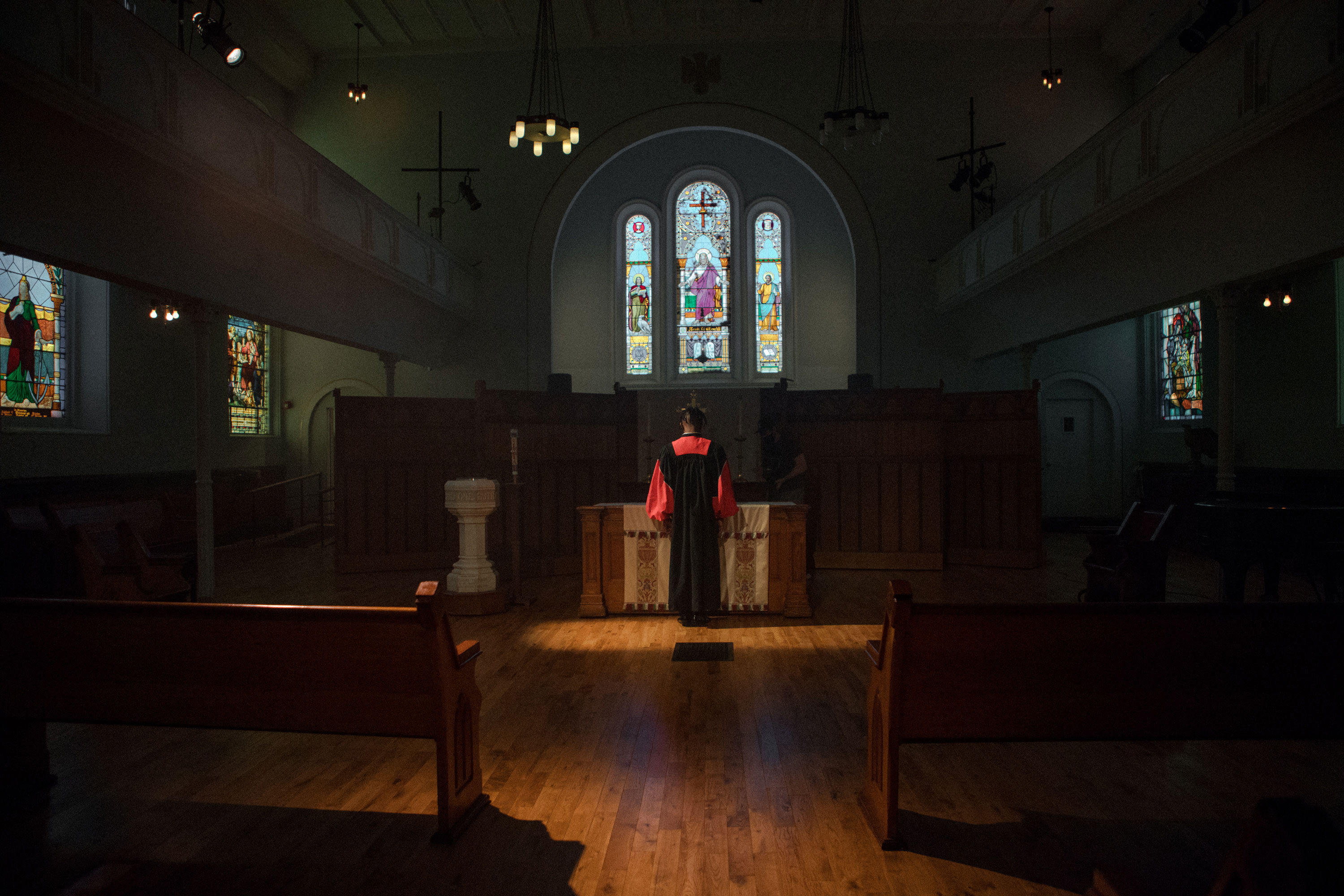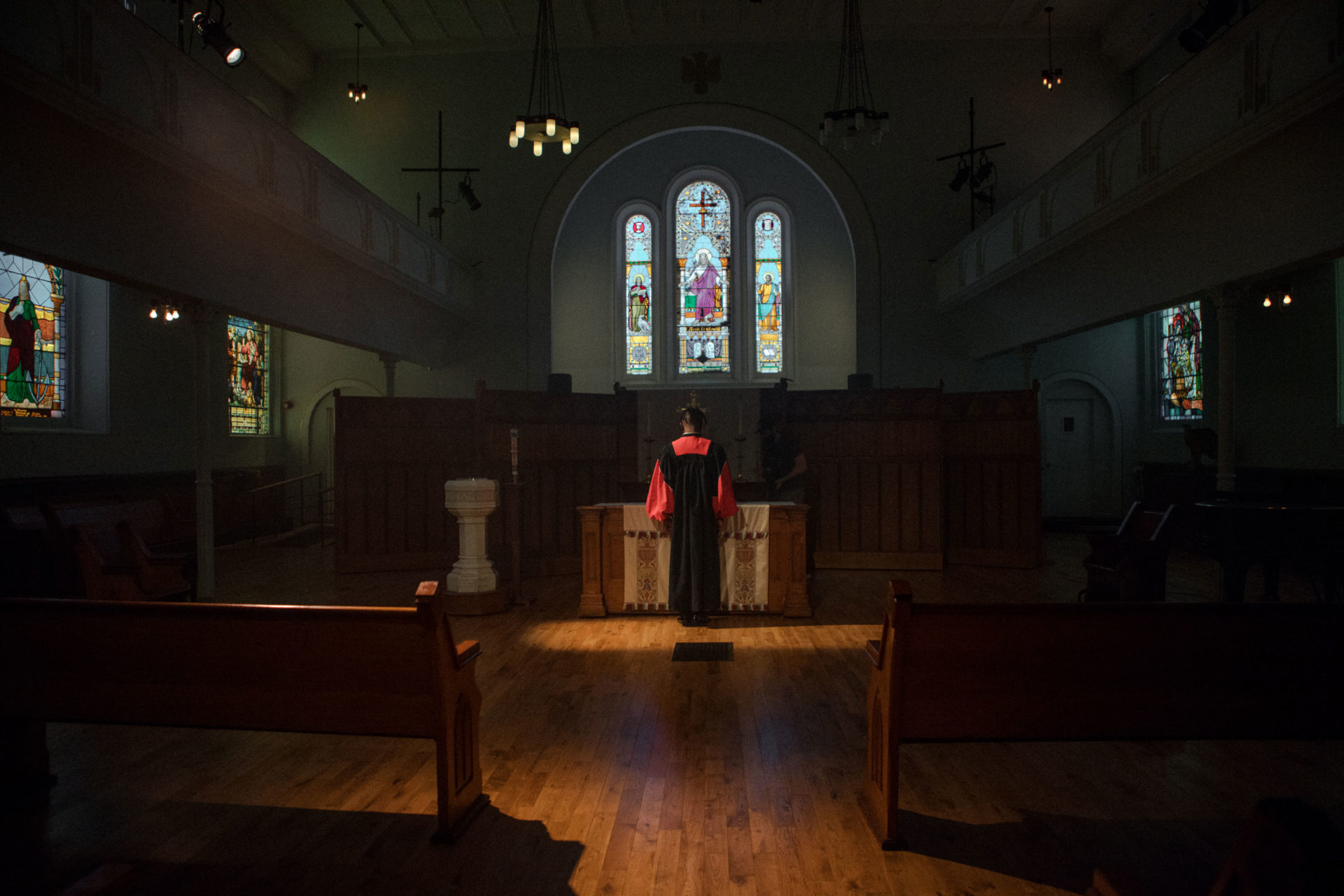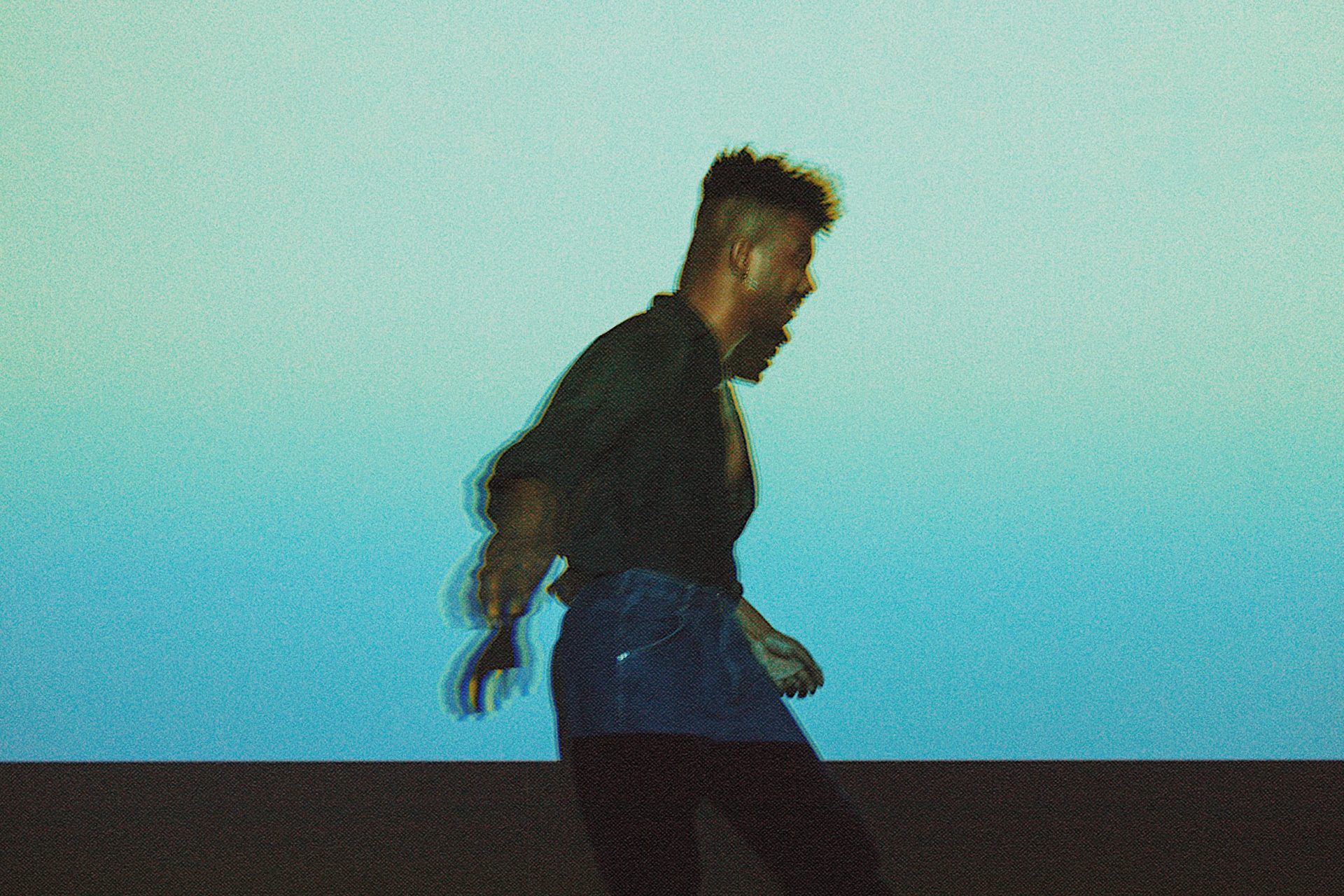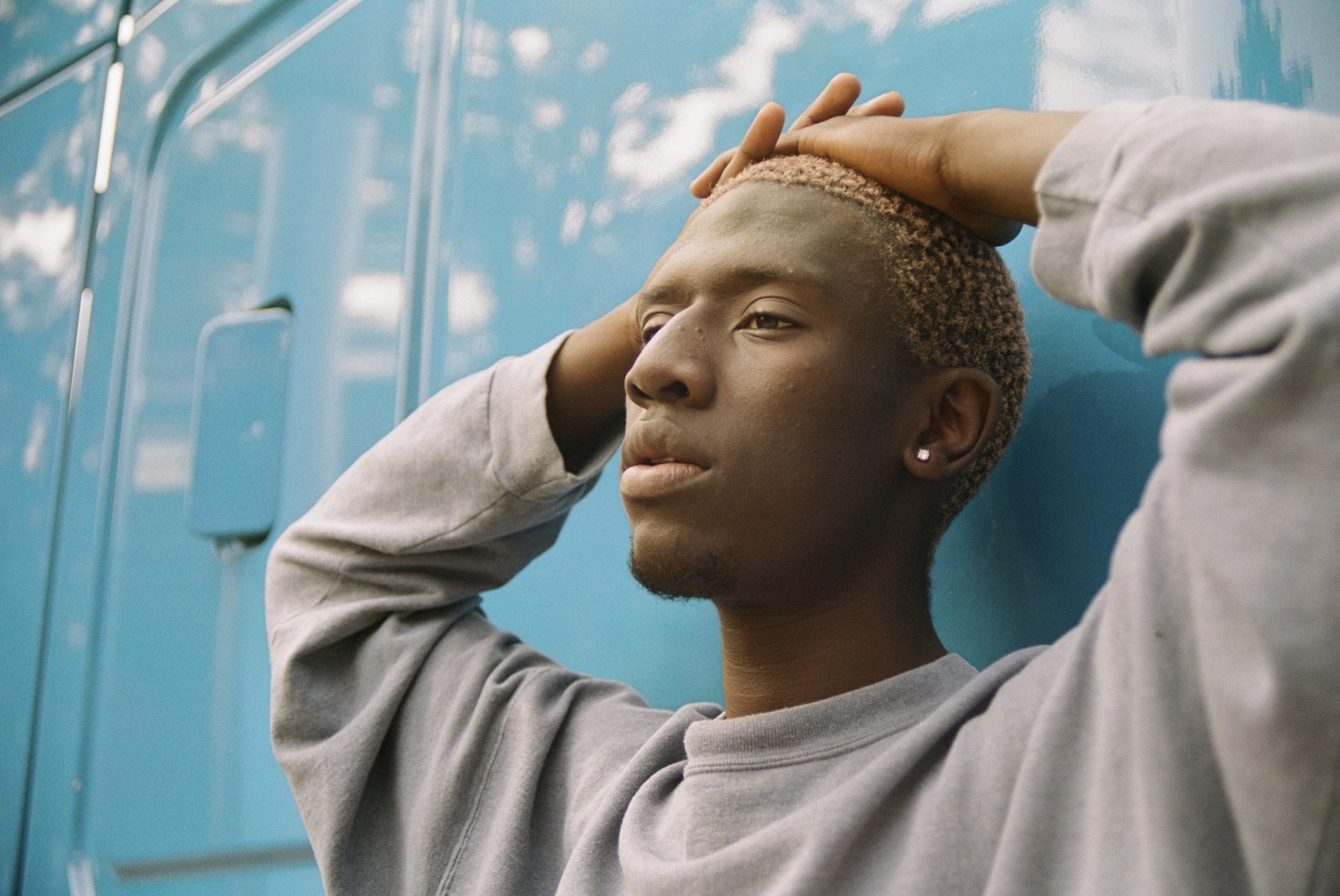I wrote “I’m Gay” a little over a year ago — actually, according to my iPhone, the first voice note was recorded on May 29, 2019.
As I began writing the song, I was also doing press for my first cookbook, Son of a Southern Chef: Cook With Soul. In it, I had poured nearly everything out, laid out almost every part of me on the pages — except for my sexuality. Even though I was appearing on panels discussing my Black queer identity, I still hadn’t owned it personally in the same way that I had publicly.
I grew up in an Apostolic Pentecostal, tongue-talking, Holy Ghost-filled church in Jamaica, Queens. I hid my sexuality because I knew what being gay meant in that space — a one-way ticket to hell. In the Black community, being gay is broadly still very taboo. I grapple with what the world expects a Black person to be and what the Black community expects a Black man to be. The two are always at war; it’s much easier to just wish prejudice didn’t exist at all than to deal with the internal and external pressures. In my experience in this community, my masculinity is often both weaponized against me and rewarded in very specific and dehumanizing ways.
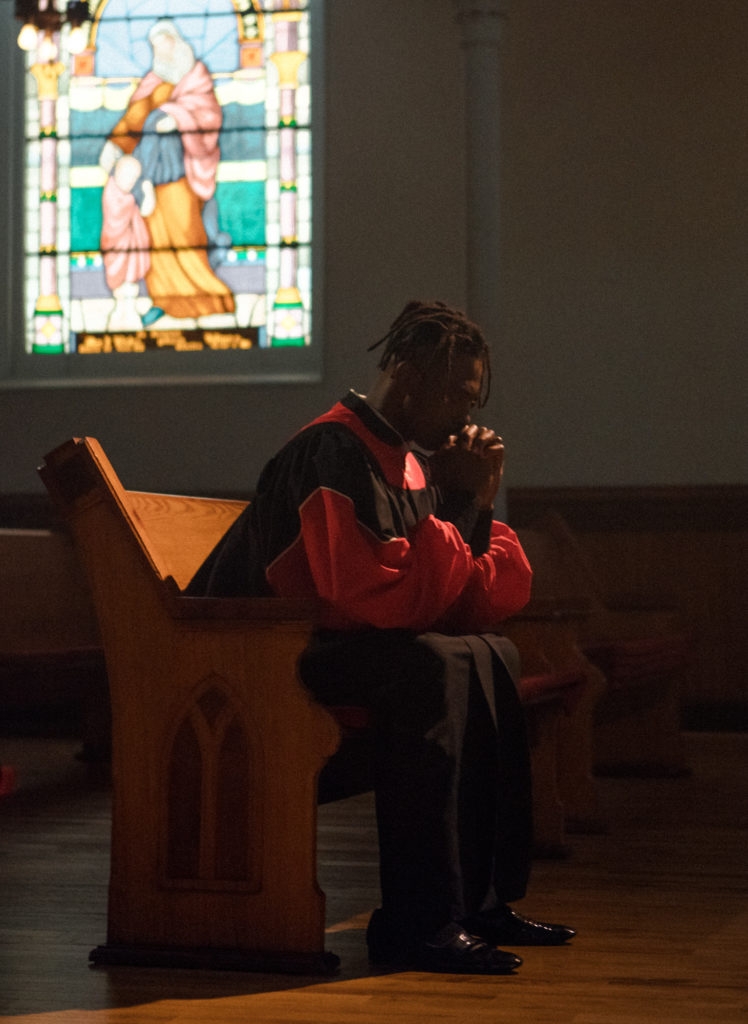
Photo by Anisha Sisodia
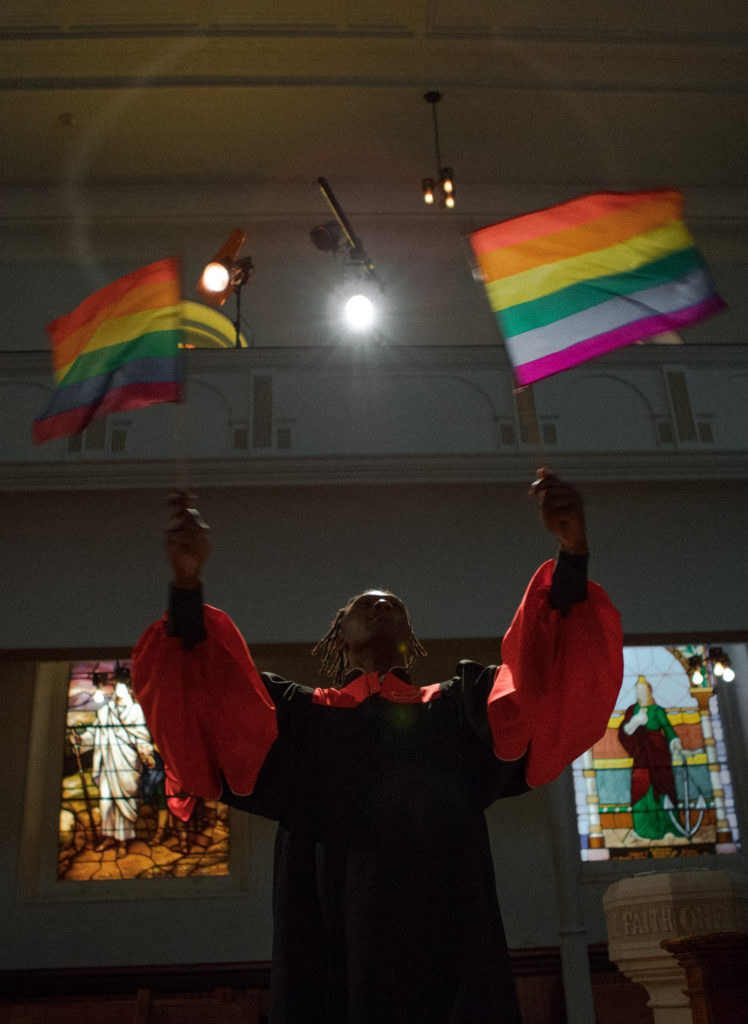
Photo by Anisha Sisodia
So many people who grew up the way I did ask themselves, “What does it mean to be a Black, gay, and Christian?” Growing up, I was terrified to ever say that I was gay or to even acknowledge that part of me. By the time I graduated college, I felt like I was suffocating — it was then when I made the decision to leave the church.
What was so painful for me was that I was not only walking away from dogma and the church, but I was also walking away from a community of vocalists, musicians, organ players, and drummers who I admired and learned so much from. It was where I had started singing, writing, and performing.
I still miss the community, the rehearsals. I miss staying late trying to get the harmony right. I miss that fellowship.
I wondered how to let go of my attachment to the church without leaving the music or my faith. I’ve had to create a new community for myself and have found one in the people that now support me. The power of community is not limited to a building, affiliation, or religion — music has the ability to transcend boundaries.
During my journey, I never lost my connection to the hymns and the melodies, the sounds that came from the church. Gospel music is all about feeling: The church organ, the drums, and choir are the sound of victory, the sound of liberation, and — in many ways — the sound of oppression. It’s embedded into my heart, soul, and DNA. It’s where many of the sounds in “I’m Gay” originate.
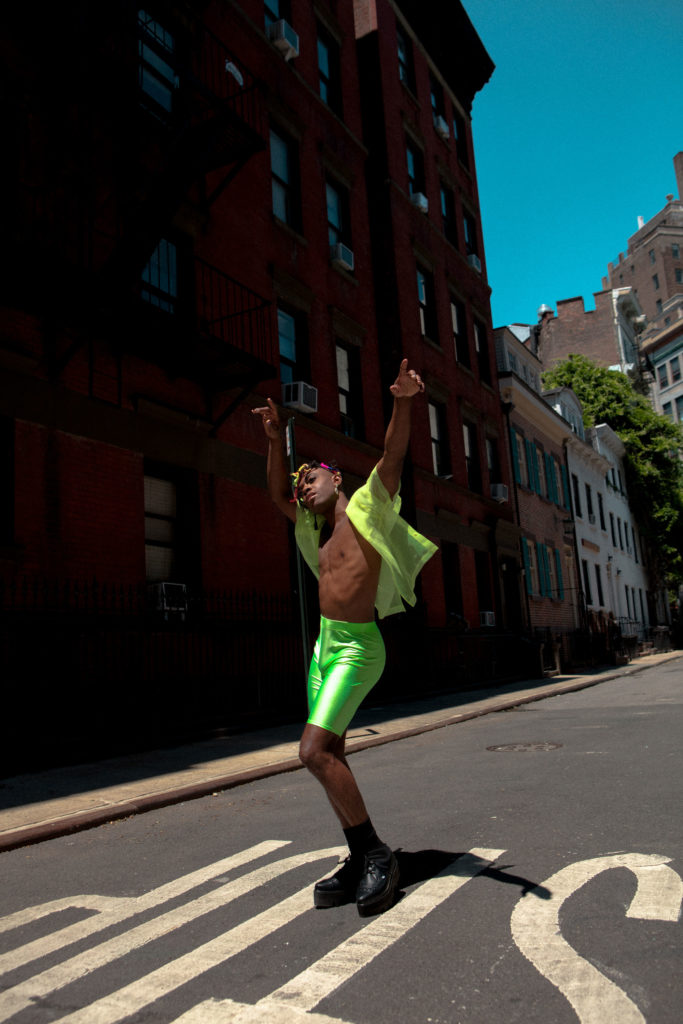
Photo by Anisha Sisodia
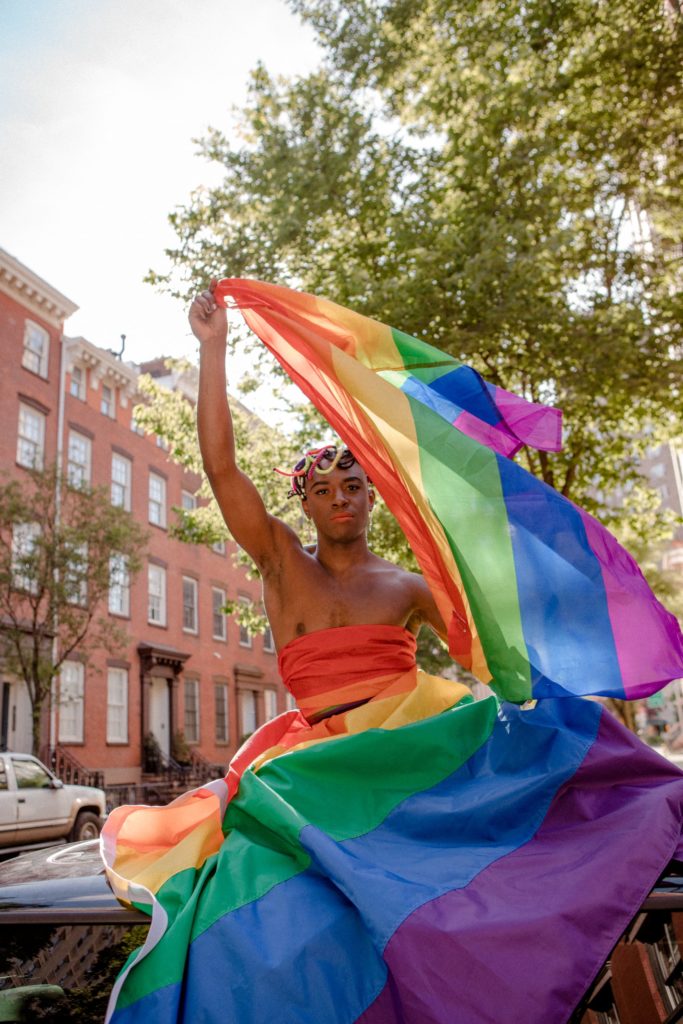
Photo by Anisha Sisodia
“I’m Gay” is a celebration of my queerness as it confronts that victory, that liberation, and that oppression. At one point, I considered calling the song “Black Boys” because I feared that saying “I’m Gay” so openly and bluntly would be hard for certain listeners to digest. Now, I see how damaging it is to feed into homophobia by not addressing it.
While recording, I came across a sermon that went viral, by an evangelist who was preaching hate against homosexuals in the church. I couldn’t let it go and ended up re-recording it for the song. It felt ugly and horrible to repeat, but I felt it was necessary to tell the story from my perspective and direct, lived experience.
The dedication at the end of the music video is to Nigel Shelby, a 15-year-old boy from Huntsville, Alabama who was gay and ultimately lost his struggle to find acceptance because of his sexuality. I hope “I’m Gay” reminds millions of Black gay boys around the world that we matter. “I’m Gay” is an affirmation for those who are still on their journey to radical self-acceptance, who still haven’t come out to their parents or communities, who still haven’t opened up to themselves. It’s our Black Pride anthem.
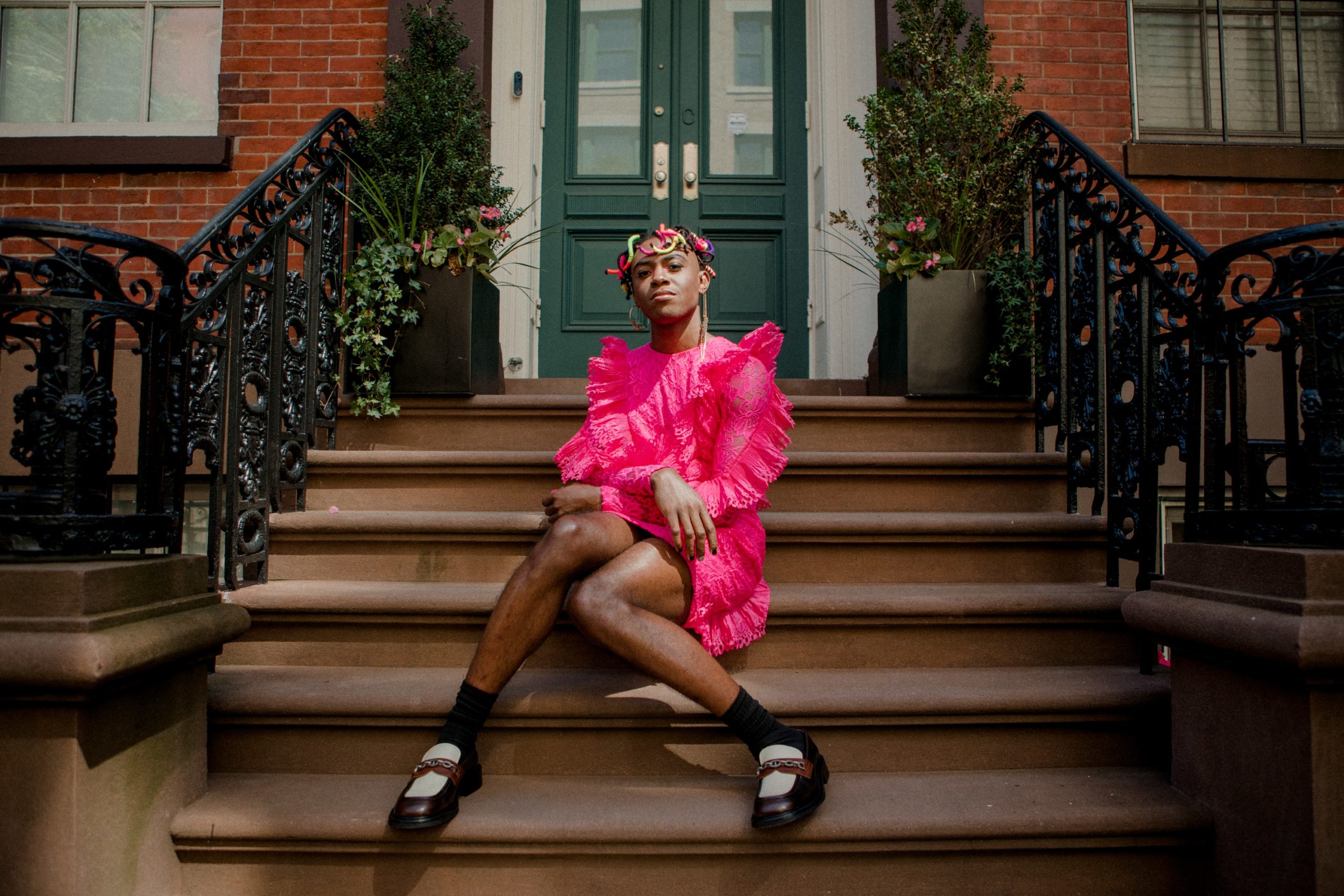
Photo by Anisha Sisodia

